Right now, the Greenpeace ships Arctic Sunrise and Esperanza are on a mission in the Arctic. We’re embarking on one as our most ambitious expeditions ever; sailing from the high north of the Arctic, to the very bottom of the Earth in the Antarctic.

This is not the first time Greenpeace has ventured into the northern ice. Since the campaign to Save the Arctic began in 2012, Greenpeace organizations have:
Kicked out Shell, the oil giant, from Arctic waters off the coast of Alaska and pushed the Obama administration to ban all new oil drilling in US waters.
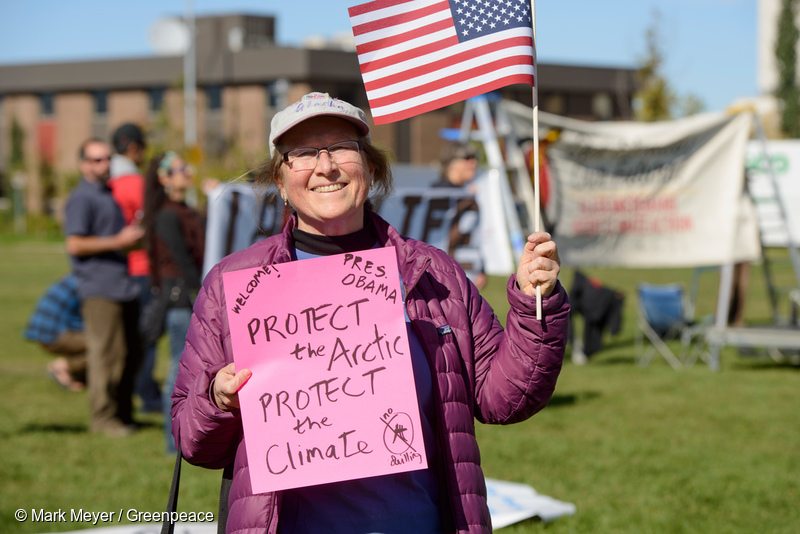
Stopped the entire fishing fleet bottom trawling around Svalbard from venturing into new areas opening up as the sea ice is melting. Then, after putting pressure on the Norwegian government, we made them establish 10 areas fully protected from destructive bottom trawling.
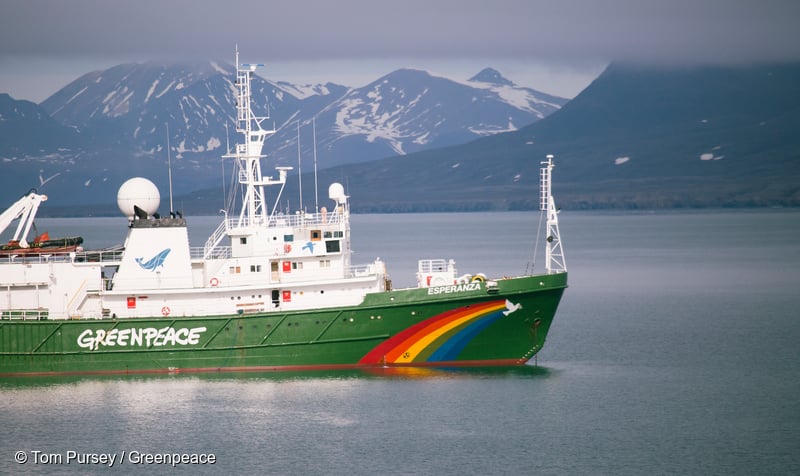
The Greenpeace ship Esperanza anchored in Svalgard.
Stopped seismic blasting off the coast of Canada, winning a legal battle in the Canadian Supreme court with the community of Clyde River.
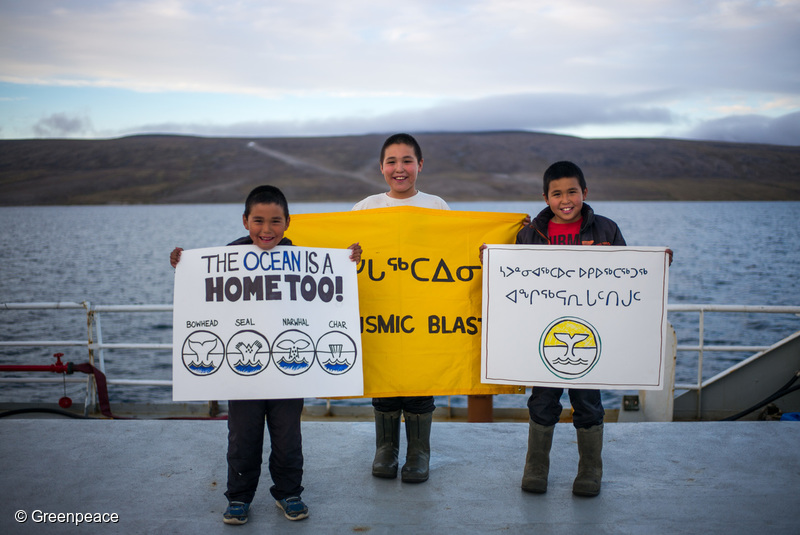
Clyde River residents hold anti-seismic blasting signs aboard the Greenpeace ship Arctic Sunrise.
Took the Norwegian government to court to prevent them from drilling for oil in the Norwegian Arctic.
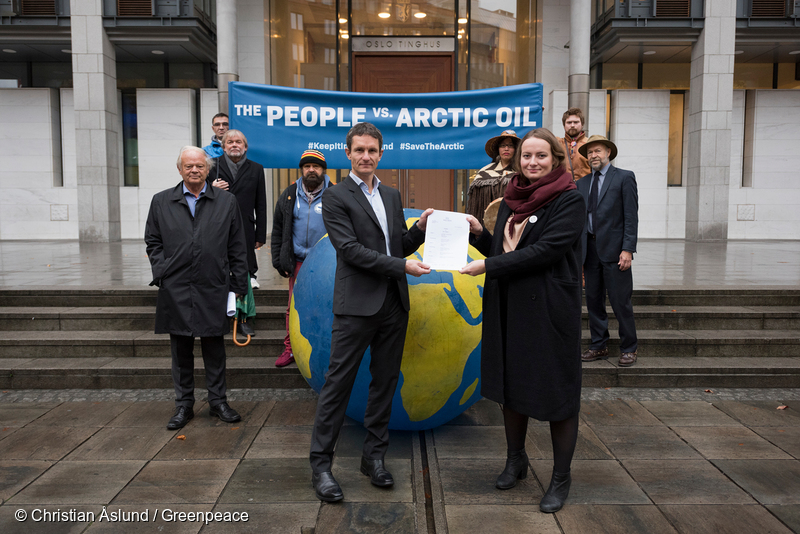
Nature and Youth and Greenpeace Nordic standing outside the Norwegian courthouse in Oslo with the lawsuit arguing that Norway violates the Paris Agreement and the people’s constitutional right to a healthy and safe environment for future generations.
Planted a capsule with the signatures of nearly 3 million people to establish a global sanctuary in the Arctic at the geographical North Pole. Now, close to 9 million people have supported the petition.
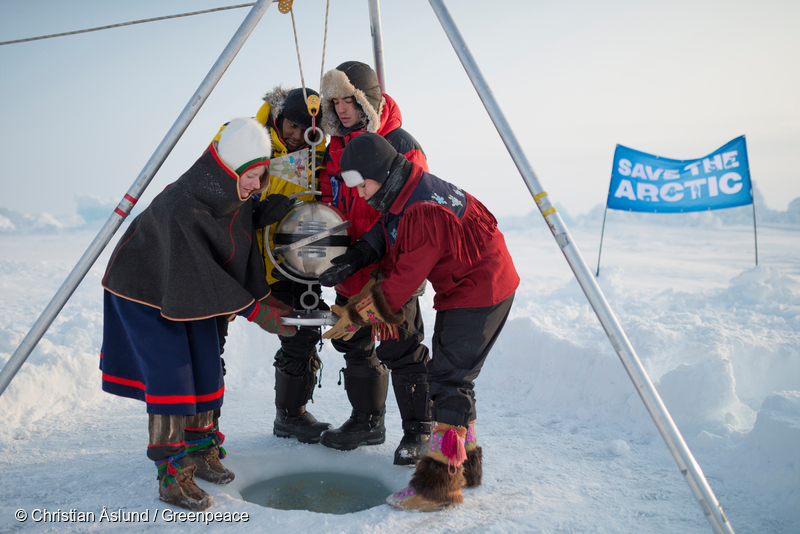
Team Aurora prepare to lower the time capsule into the icy waters at the North Pole. A “flag for the future” is attached to the glass and titanium time capsule containing 2.7 million names of supporters who wish to protect the Arctic.
The Arctic is warming twice as fast as the global average. Warmer oceans, retreating ice, and ocean acidification are just some of the challenges facing wildlife like polar bears, Arctic terns and narwhals right now. Melting ice caps must not be seen as an opportunity for industries to exploit this vulnerable ecosystem, but as a call to action for world leaders. This is our last chance to save the Arctic.
The oil rigs littered across the region, from Russia all the way through the Arctic to Canada, have become a symbolic frontier in our fight to keep in the ground the carbon that we can’t afford to burn. Our history of standing up to Arctic oil is clear.
We have made progress in the region, but there is much more to do. It might sound like a cliche, but it’s true: our time is running out. Now, more than ever, we must stand together to protect our oceans.
With the increased threats our oceans are facing, from climate change, to plastic pollution and overfishing, the oceans need protection more than ever before. Right now the UN is discussing how and where we should look after our oceans. This is our chance. Decisions made over the coming months will affect how governments and industries behave at sea for decades to come.
